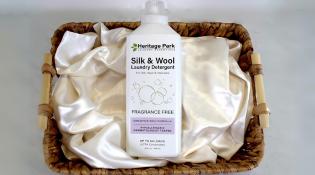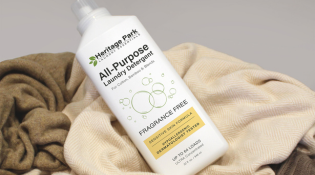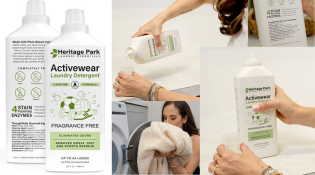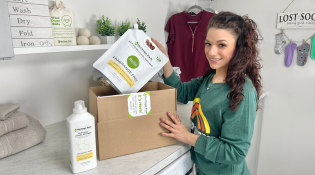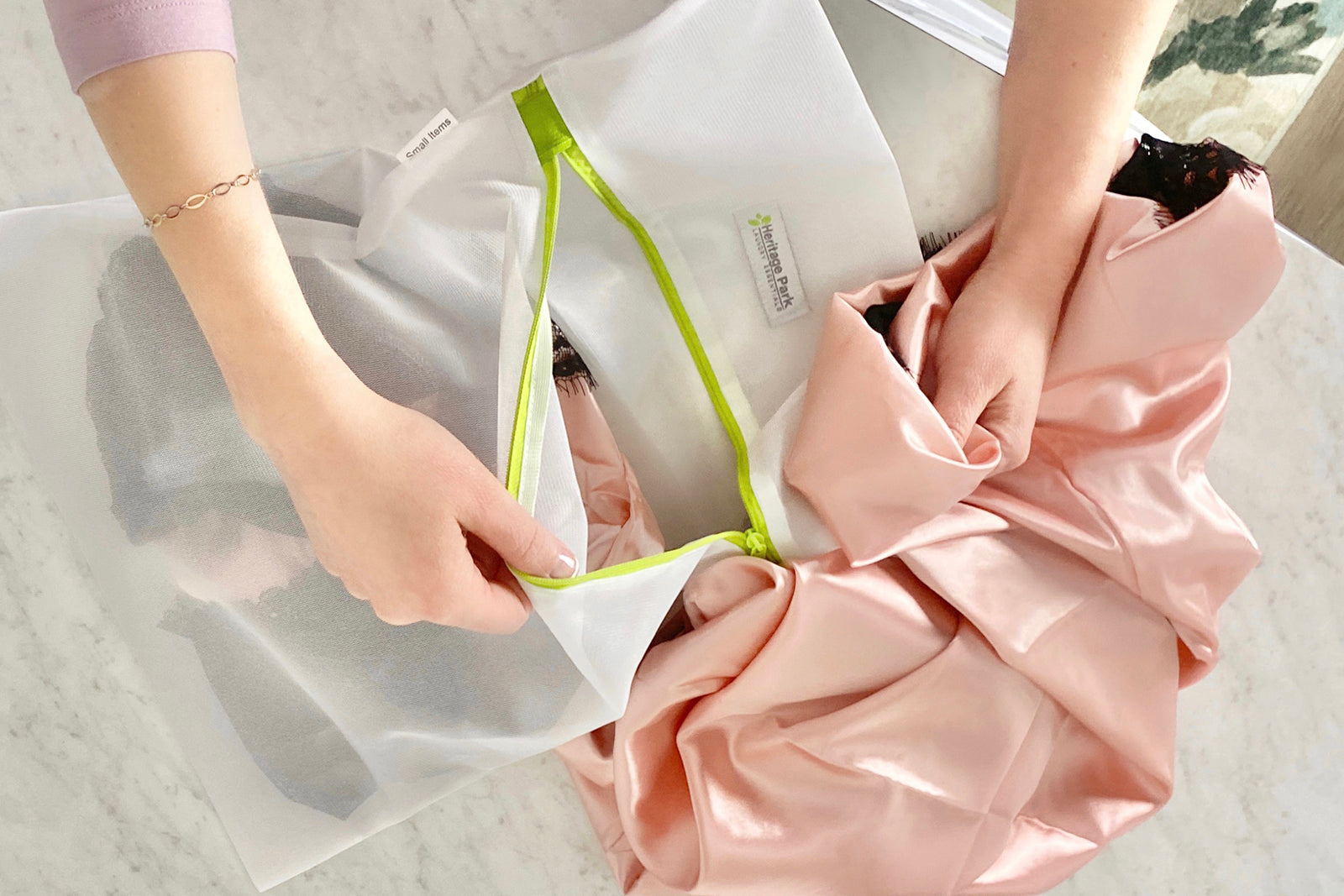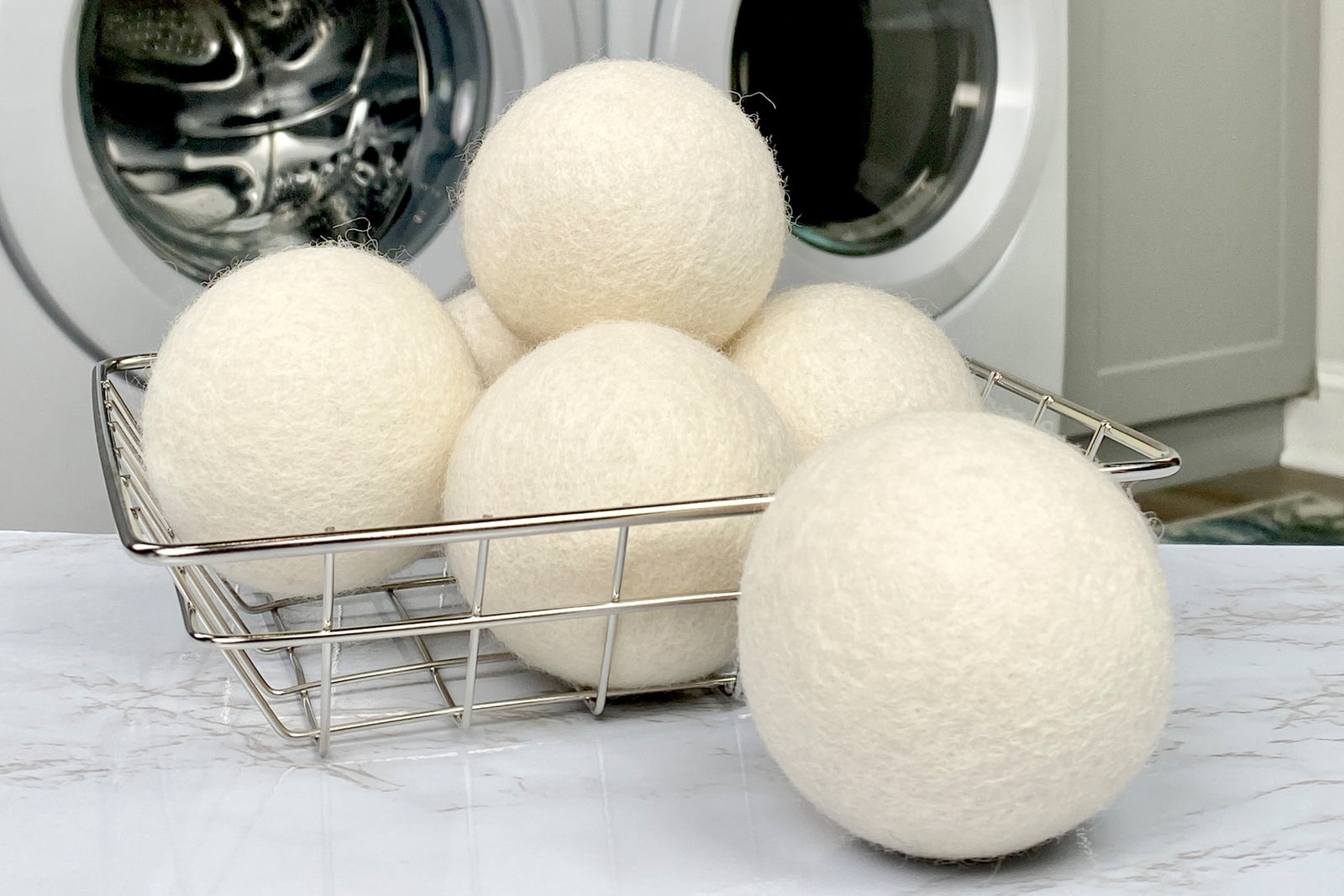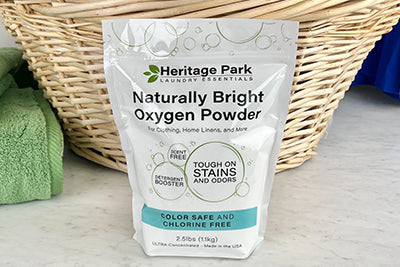This article discusses washing machine capacity and how to prevent overloading your machine.
Inside this Article:
Understanding (and Respecting) Your Washing Machine’s Capacity
Here at Heritage Park, we’re all about best practices for doing your laundry. That’s why we constantly remind our clients not to overload their washing machines. But, depending on your specific machine and what exactly you’re laundering, that advice can be a bit vague. If you ask my husband, a “regular” size load is as much as he can stuff in the machine! But in short, a general guide for most washers is to not fill the drum any more than half way. Read on, as this blog will help clear up any confusion by discussing washing machine capacity and proper load size.

What Does Washing Machine Capacity (Really) Mean?
We use the term “washing machine capacity” on a regular basis, so it’s worth explaining exactly what we’re talking about. In short, washing machine capacity refers to the volume of the tub inside your washing machine. A washing machine’s capacity is usually expressed in cubic feet; it determines how much laundry your machine can hold and wash in a single load (more on that later).
Along with space considerations, choose a machine with a capacity that best suits you and your family’s needs. If you are in the market for a new washer, here are a few of things to consider:
- A standard top load washer has a bit less capacity due to the agitator mechanism, which takes up space. It does a good job of cleaning clothes, but this type of machine is not great for the heaviest items such as comforters or a full load of heavy towels.
- Along with using less water, an HE top loader has a larger capacity because it cleans laundry using a smaller impeller mechanism, which is shorter and lower profile. This leaves more room for laundry. Here is a good explanation of the difference between agitators and impellers.
- An HE front load washer will use less water and higher capacity because there is no agitator or impeller at all; they clean clothes by rotating the drum itself. We love these machines, especially in terms of water usage, but they do come with the drawback of attracting odor over time. Check out our blog on how to keep your front-loading machine clean and smelling sweet.
How to Find Your Washing Machine’s Capacity
The capacity of your machine should be listed in the owner’s manual or on a product label on the machine. You can also easily look up your make and model online and find the capacity. If you’re more adventurous, and haven’t been traumatized by high-school geometry, here’s an easy formula:
- Measure the diameter of your machine’s drum in feet and divide it in half to get the radius.
- Measure the depth of your machine in feet.
- Use the following equation: Radius x Radius x 3.14 (pi) x Depth = Capacity
Once you have this number, you can refer to the chart above to discover what the estimated maximum load size for your machine should be and from there determine what is a small, medium, or large laundry load for your specific machine. Also consider the weight of the items you’re washing. For example, a full load of sheets will weigh less than a full load of towels, sweatshirts, or jeans; if you’re concerned about whether your machine can handle the heavier load, break it up into two smaller loads. You should also familiarize yourself with your wash cycle options and other washing machine features; here is a helpful guide to washing machine settings and cycles.

Why You Should Never Overload Your Machine
Whenever we talk about washing clothing or home linens, we mention the importance of not overloading your washing machine. Of course, washing a full load of laundry helps you get maximum efficiency, both in terms of time and energy used. But as we noted earlier, heavier items like towels or denim absorb quite a bit of water and quickly constitute a large load.
Overloading your machine can lead to some unpleasant consequences. If you have too many items, your clothing or linen simply won’t get clean. An overloaded washer will not accommodate the proper water level; the clothing won’t be able to move around; and the water and detergent won’t penetrate the fibers to remove dirt.
If you have a top loading washer, an overly full load can quickly go out of balance, causing your machine to shut down or vibrate. Overloading and type of washing machine can put extra strain on the motor, which will cause premature wear and tear and ultimately lead to costly appliance repair or even replacement. This is why we recommend following the manufacturer’s guidelines for load size. If you are uncertain, begin with a small load then increase the load size to a medium load, and so on until you discover what works best.
Choose the Best Detergent for Your Laundry
Choosing the proper laundry detergent is just as important as running an optimal size load of laundry. Whether you’re cleaning white towels in hot water; washing delicate table linen in cold water; or running a routine load of your family’s clothing, you want a detergent that is safe and effective like Heritage Park All-Purpose Laundry Detergent:
- Concentrated, pH-neutral formula
- Made with a short list of plant-based ingredients
- Fragrance-free formula is lab-tested hypoallergenic; pediatrician-and dermatologist-tested; and wonderful for sensitive skin
- Works in any temperature in standard and HE machines
- Effective stain removal and odor with a proprietary blend of cleaning enzymes
- Protects and preserves delicate fabric
- Made without dyes, sulfates, phosphates, optical brighteners, chlorine bleach, or caustic chemicals
- No fillers or excess water
- Safe for people, pets and the planet

Heritage Park Laundry Essentials
At Heritage Park, caring for fine fabric is our passion. As lifelong collectors of luxury sheets, towels, and cloths, we found many commercially available "gentle detergents" either damaged our fabrics or didn't get the job done, leaving stains. We knew we could do better. So we developed a formula with the perfect balance of powerful -- yet safe -- ingredients designed to remove tough, set-in stains while remaining gentle on luxury linens. Please connect with us at (800) 977-1841 or visit our store or email us with any product feedback or cleaning questions.


